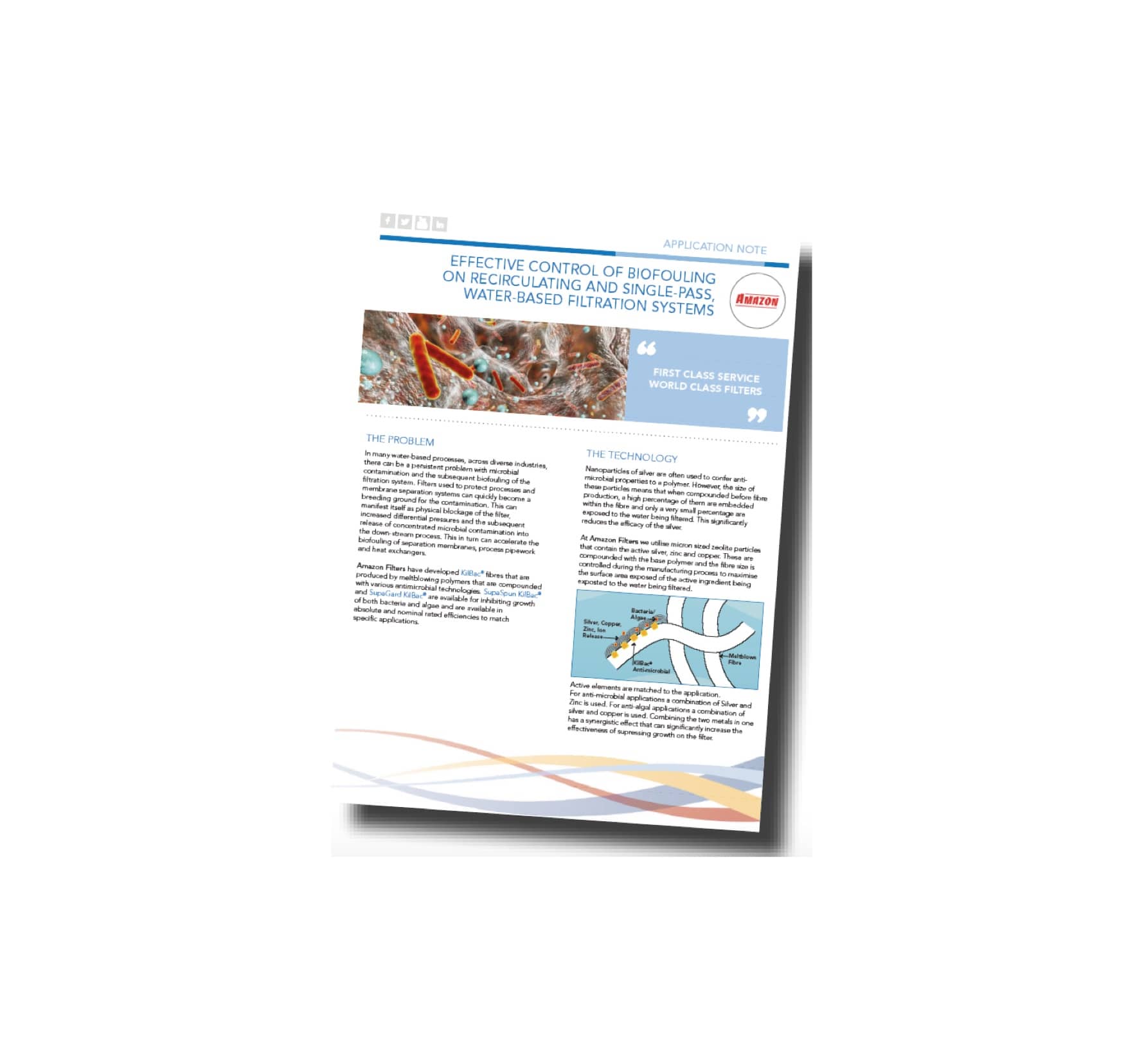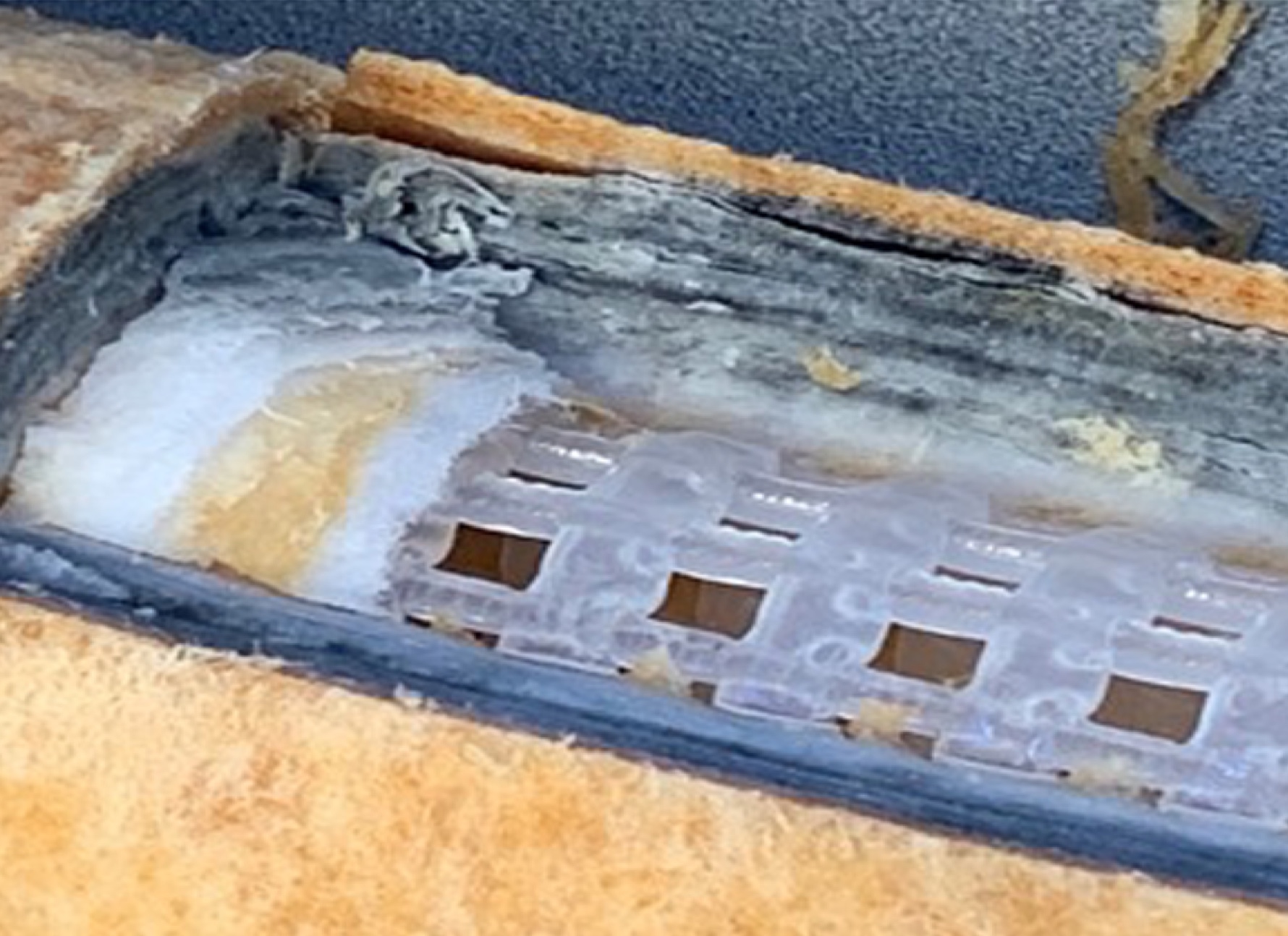Preventing microbial and algal growth on the filter
Extensive laboratory testing has been performed on the SupaSpun KilBac® demonstrating the effectiveness of both the antimicrobial and anti-algal filtration media on supressing growth of captured organic material. This is discussed in detail in supplementary application note: ‘Effective control of biofouling on recirculating and single pass, water-based filtration systems’.
The real question is, can this benefit demonstrated in a lab, be translated to a measurable and significant difference to the filter’s performance in real world conditions.
Due to the varying and often rapidly changing conditions of inlet seawater it is difficult, if not impossible, to obtain definitive comparison testing when running different filters back-to-back as filter run times are not constant even with identical sets of cartridges. To address this issue, a test program was initiated that ensured that the three different specification filters tested were challenged with the same quality sea water.


